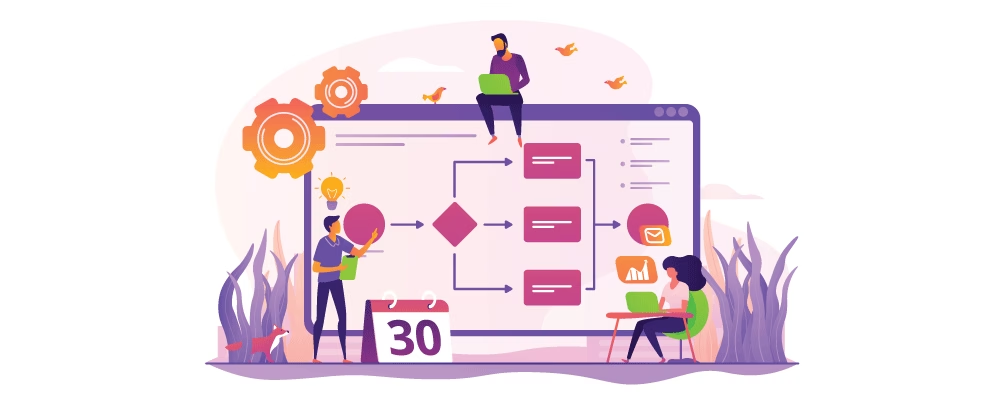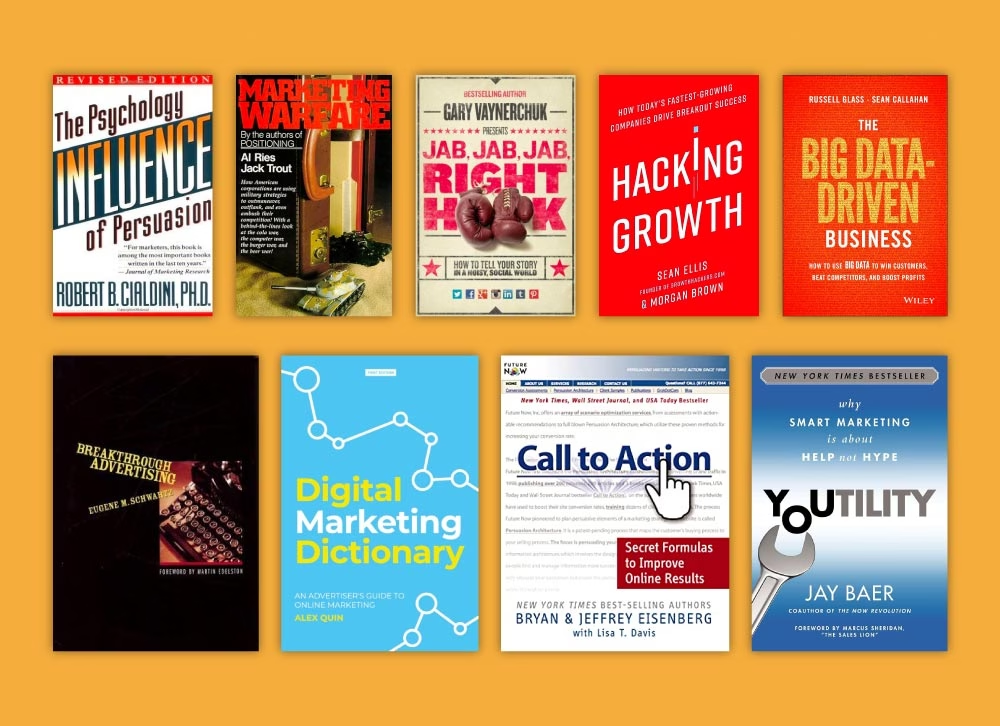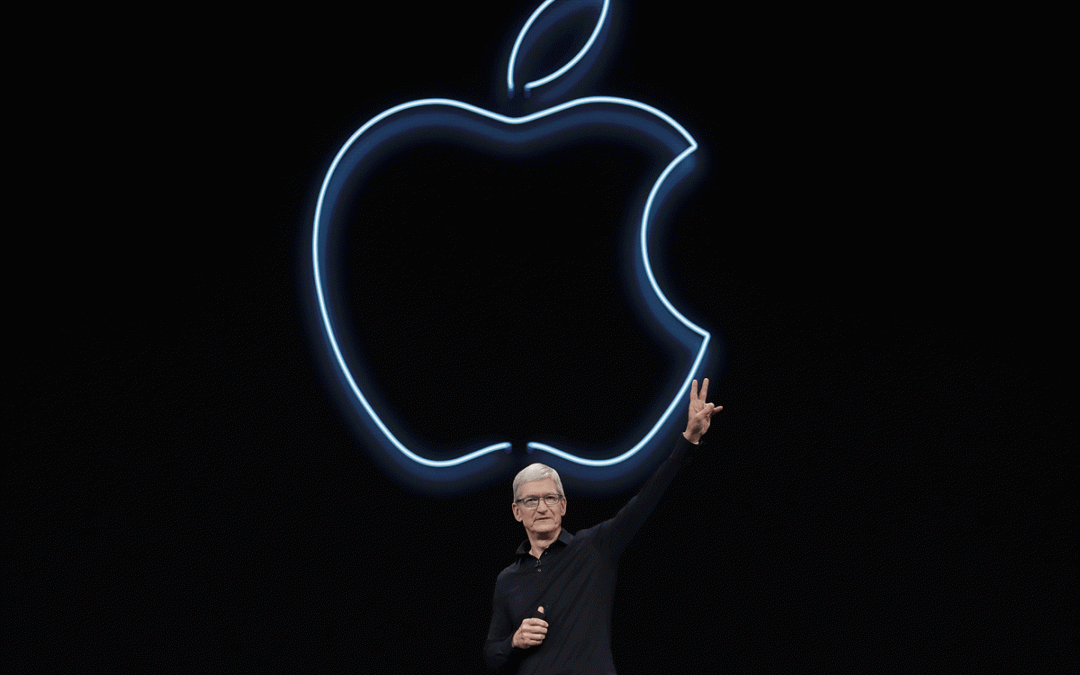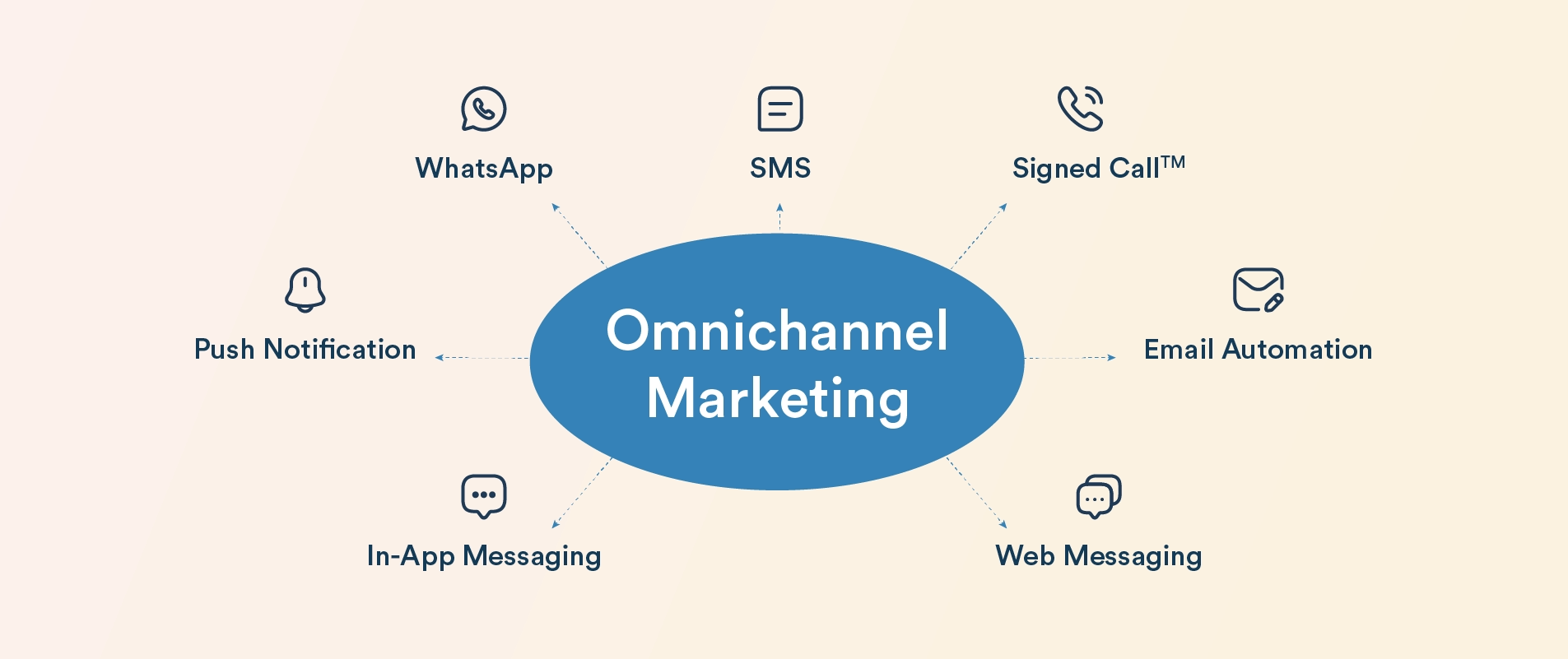Data as a Service (DaaS) is a cousin of Software as a Service (SaaS). DaaS builds on the concept that the product (in this case, data) can be provided on demand to the user, regardless of geographic or organizational separation.
How Does DaaS Help Grow Your Business?
Prospecting forms a vital part of B2B sales and your business growth plan because, to paraphrase a popular saying, you can’t always expect the mountain to come to you; sometimes, you have to go to the mountain yourself.
Sometimes, you have to contact potential customers and let them know you exist, tell them what you can do for them, and drive sales directly.
One of the most demanding tasks of B2B sales prospecting, however, is finding real, workable leads and, once you have them, maintaining contact as people shift jobs, companies, and even countries. B2B Data as a Service is designed to reduce the admin burden on salespeople and other business users by providing an up-to-date, cloud-based contact database that works for you.
What Are the Advantages?
1. Less Time Wasted on Prospecting
Sifting through mounds of articles, websites, whitepapers, contact lists, and press releases, all to put a workable contact list together, can be a tremendous time-suck for any salesperson. Of course, you could hire a temp to do all the hard work and compile a contact database, but people change jobs and companies, get promoted, and make lateral moves all the time, rendering your contact list out of date and invalid after a while.
DaaS, on the other hand, is an automated system that does all the initial data sifting for you, then continually checks and tracks company and employee movement. This way, you don’t have to wait for days or weeks for usable contact information.
How this helps you flourish: Less time wasted on getting contact information means more time to spend on contacting the right people. The more people you can get hold of, the more new clients you will sign and sell to.
2. Clean, Up-To-Date Data
Just because Joe Bloggs has been the procurement manager for ACME Hardware for the last twenty-seven years doesn’t mean he always will be. Joe might retire or finally get the promotion he’s been angling for over the past twenty-three years. He may be replaced by his subordinate, or the company could bring in someone fresh and new from their competitor.
This scenario plays itself out hundreds, if not thousands, of times a day in your potential customer base. Of course, any good salesperson will make an effort to stay up to date with what’s happening at their established clients. Still, it’s ludicrous to expect them to know what is happening at every company within your potential client base.
Because DaaS systems continually monitor and track employees and other company info, your database is far more likely to be up to date at any given time. Because it’s cloud-based, you don’t have to download fresh lists; you access them and get in touch.
How this helps you flourish: Being on the ball and immediately up to date makes it clear you know what you are doing—rather than floundering and having to ask who is new and in charge, you can confidently get through to the right person every time.
3. Global Reach
The world has shrunk, thanks to technological advancements, and there’s no reason why your business should restrict itself to dealing only with local customers. You can reach and speak to customers using a variety of methods, from phone to email, Skype to text message, at any time and from anywhere.
Unlike our temp, scouring through lists of names, DaaS doesn’t need to sleep, eat, or conform to labor legislation, meaning it’s not restricted to phoning people in a similar time zone or contacting only those who speak the same language.
How this helps you flourish: With the right contacts and information, you can find the best suppliers anywhere in the world and sell to customers wherever your database can reach them. Even small businesses can offer their services to anyone, anywhere, making your potential marketplace infinitely larger than a few local clients.
There are, of course, many other benefits to DaaS, including cost-effectiveness. Dynamic data management is rapidly becoming crucial to any business, and not just to enhance and streamline sales. Over the coming weeks, we will look at the ways business is changing and how DaaS can help that transition.
Five Ways DaaS Helps With Your B2B Marketing
Your marketing department has undoubtedly been on the ball lately. They’ve developed some excellent advertising campaigns, a few practical direct marketing ideas, and a compelling content strategy. There’s just one minor niggle in the plan—they have no idea how to get the message spread wider.
Local marketing is all good and well, but so many businesses these days can do business with anyone, anywhere in the world. Even small companies can provide goods and services to customers halfway around the globe, easily and cheaply.
But how do you find those customers? How can you effectively increase your reach? Data as a Service could be the answer.
4. Get In-Depth Customer Information
Traditional advertising is falling by the wayside rapidly. Television ads are becoming less and less relevant as more people switch to streaming services, and the same goes for radio, with hundreds—if not thousands—of ad-free music streaming services available.
If traditional advertising is gasping its last breaths, but what’s taking over? In a nutshell, it’s content marketing and social media—not advertisements inserted into social media, mind you, but a proper conversation with your clients. And to start a conversation and follow it through to its natural conclusion, you need information…lots of it.
Data as a Service (DaaS) isn’t just a way of keeping your email list up to date. It’s about ensuring you have all the necessary information about your customers to provide them not only with the products and services they need, but also with the content they’re interested in. Interesting, engaging content is going to keep your customers coming back for more—which means more sales.
If you have an online store for your products, you can link your DaaS to gather transactional information on your clients. What they buy, how much they spend, what they browse, and how often they visit can all help you make recommendations on products. But you already knew this.
What you might not have realized is that this information can help you plan your content to bring more customers to you. Let’s say you sell furniture and accessories. Your data analysis software throws up an interesting statistic—80% of your customers have browsed the lighting section of your website.
Moreso….
Not all of them have made a purchase, but lighting is hot stuff. Using this information, you get your company blogger to write a series of articles on how to light rooms in the house effectively. As a result, you attract several new potential customers who were looking for tips just like that.
Of course, you might not have an online store. You might sell a service, rather than a product. However, the savvy business owner knows that there’s more than one type of transaction online. There’s the interaction between you and your clients that makes a critical difference to the way you operate.
Just because you don’t sell physical products doesn’t mean you can’t go into detail about what you offer online. Delineated services that potential customers can search for or browse will help you gather all the transactional information you need to provide them with the same kind of engaging content your retail counterpart does.
Knowing what customers want by tracking their search queries is just one of the ways DaaS helps you engage with your customers, increase sales, and leverage the power of the internet to build your business. Over the coming weeks, we will continue to look at more ways DaaS will change your business for the better.
5. Target Specific Types of Customers
If you have access to a clean, up-to-date database of potential customers, you can easily target specific groups of customers with ease, regardless of their location. Using search parameters like company type and size—or a host of other information—you can focus your account-based marketing and advertising campaigns to reach the types of potential customers who are more likely to use your services or products.
How does this help? It eliminates a significant amount of wasted time and energy. Unlike the “spray and pray” approach, you will get better responses with less effort.
6. Multichanneling Is Made Easier
While a single, targeted contact is a great way to get your campaign started, follow-up is vital to reel in those customers. Using multimultichannel is an effective way to increase awareness and build brand presence, and using DaaS can make it a lot simpler.
For example, your dynamic database is set up to collect information on the potential customers you sent the original email to. Each person who clicks a link in your email is listed and retargeted using any combination of direct marketing, social media, and advertising.
7. Geolocation
Specific campaigns, products, and services are best targeted to people or businesses in particular areas. Once you’ve gone through the trouble to identify an area that requires what you’re selling, DaaS is going to help you find the customers to target in that area.
This means you can create excellent, targeted multimultichannel campaigns tailored to specific areas, focusing your time, energy, and budget where you already know it will be effective.
8. Improve Your SEO by Creating Better Content
Data as a Service, or DaaS, can be beneficial for helping you target specific types of customers, engage in multichannel marketing, and target specific geographic areas, but what about SEO and content marketing? How does knowing your potential client and having a clear, up-to-date B2B database help with that?
So how does DaaS help you create search-engine-optimized content that’s worth engaging in?
Simply put, it helps you get to know your clients. DaaS doesn’t just help you find potential clients in the right demographics; it also provides feedback on customer engagement with your marketing efforts, which means you receive valuable information at every step.
By using the kind of detailed analytics that DaaS can provide, you can easily see what types of people are interested in the content you create, how much they engage with it, and which content is generating the most interest. That means:
You can create targeted content
By knowing the age, gender, race, location, education level, industry, and a whole host of other information about your clients, you can create content that is more specific and targeted. It’s an invaluable research tool to make sure you aren’t missing the mark.
You can focus on what works, or fix what doesn’t
Suppose your click-through rate from an email newsletter is at 70% while your Google search ranking looks dismal. In that case, you can focus on two key areas: increasing your mailing list subscriptions, knowing this approach works, and investigating why your search engine ranking is low to improve it.
You can give clients what they want.
If customers engage with, for example, a specific blog post—in other words, by not just reading it, but sharing it via your social media share links or commenting on it—you can determine what content is interesting and relevant to your audience and expand on that.
DaaS can fundamentally change the way you market by helping you identify your audience, expand your geographic and demographic reach, and facilitate a shift to multichannel marketing.
Three Other Ways DaaS Can Change Your Business
When you first started your business, we’re sure you had a pretty clear idea of what you wanted to achieve and a fairly specific context in which you wanted to achieve it. Whether your business remained small but successful or grew larger than you ever imagined, we are also sure that your context shifted, at least a little.
However long you’ve been in business, you have to admit that contexts are shifting rapidly in the business world, and anyone who tries to cling to their original plan is likely to find themselves failing, simply because they refuse to adapt to a changing business landscape.
Fortunately, Data as a Service is there to help you adapt and thrive. This week, we’re examining a few surprising ways DaaS can help your business adapt to meet new demands.
9. Change the Way Your Employees Work
The traditional model of work is changing just as fast as every other aspect of business. An increasing number of small businesses are simply not renting office space at all, while large corporate companies are outsourcing more and more of their functions to freelancers or contractors in various locations around the world.
With DaaS, your employees—both full-time and part-time—can access all the information they need to do their jobs effectively, from anywhere, at any time of the day or night. This means you could have people keeping your business working 24 hours a day, without racking up overtime or being constrained to a 9 5 workday.
Another benefit is that you can save a significant amount—many of these global workers could perform their jobs just as easily, if not more easily, from home as from an office. You save rent costs, as well as the cost of equipment, consumables, utilities, and other office-based expenses, while your employees save time and money on commuting.
10. Change How You Collaborate
With all the data you need at your fingertips and accessible from anywhere, it makes collaborating with other industry players much simpler. This means you get to draw on their expertise to help grow your own business. Also, like with your global network of employees and contractors, you get to collaborate with experts worldwide, rather than simply locally.
11. Change How You Plan Growth and Expansion
In traditional business, growth often is quite literal. As your workload increases, so does your staff complement, your need to have offices in various locations, more office space, branches in other countries, and so on.
With access to a global database, you can not only plan this expansion and growth a lot more effectively, but you can also build in a lot more efficiency. For example, your office in one country could only need one person to respond to queries, while another country’s office could require several people doing various jobs.
DaaS helps you clarify your real customer base in target locations, make sure you are opening in the correct location, and also plan whether a fixed office is needed or can be replaced by a few home-based contractors.
DaaS is about more than simply having the correct email address and phone number for a potential client; it’s about making business better, more efficient, and more cost-effective all around. Next time, we’re taking a look at what customer information DaaS can provide—some of which you may not have even known you needed.
Conclusion
Data as a Service represents a paradigm shift in how organizations access, manage, and leverage data to drive business outcomes. By offering on-demand access to diverse data sources and resources, DaaS enables organizations to unlock the full potential of data while reducing costs, enhancing agility, and fostering innovation.
As businesses embrace digital transformation, DaaS will play an increasingly critical role in shaping the future of data-driven decision-making.
ProductDelight serves as a prime example of Data as a Service by providing organizations with the tools, resources, and infrastructure needed to harness the power of data for strategic decision-making, operational efficiency, and business growth.
Through its comprehensive suite of features and capabilities, ProductDelight empowers businesses to leverage data as a service, gaining valuable insights, driving innovation, and staying ahead in today’s competitive landscape.






